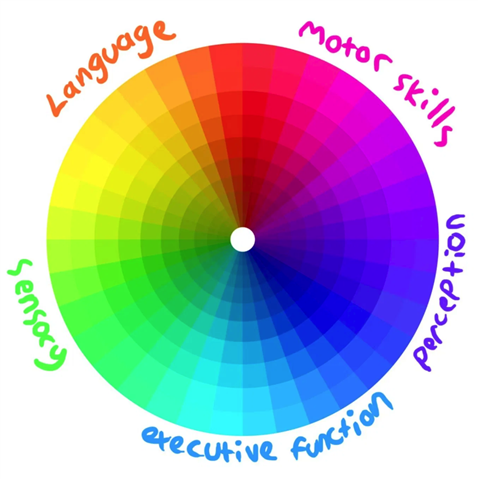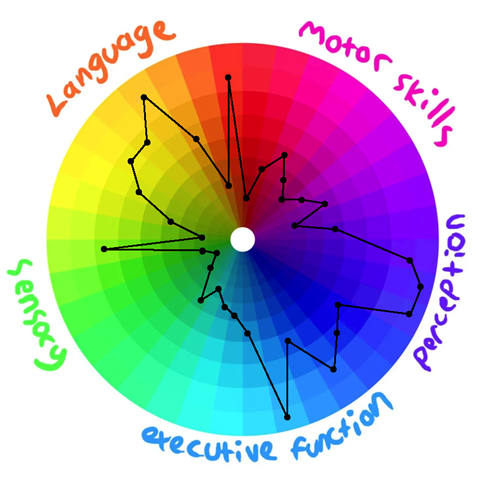Hey guys,
I was diagnosed with autism last year. Since then I have read up a lot on the subject. Below is my first draft for an autism awareness session I am preparing for work.
Please let me know what you think?
1) There is a concept known as the Social Model of Disability. This means we are all disabled -
even if you don't think you are.
For instance - since we cannot fly - we need stairs or lifts to help
us reach the floors high up in a building. Just as somebody in a wheelchair needs help (eg a
ramp) to reach the front door of a building. A disability is simply a disadvantage that is suffered
by somebody because the adjustments to overcome that disability have not been put in place.
2) Autism - Sally/Anne experiment - An ingenious experiment demonstrating how children with
autism struggle to understand the concept of "Theory of Mind" - https://tinyurl.com/raw6v4w
3) The Double Empathy problem - like driving down a road with no headlights and no indicators.
I cannot see where I am going. And you cannot see where I am going. And this creates a
feedback loop where simple misunderstandings can escalate over time.
The theory of the double empathy problem suggests that when people with very different
experiences of the world interact with one another, they will struggle to empathise with each
other. This is likely to be exacerbated through differences in language use and comprehension.
4) Awareness is a two-way street. If I am aware that I have a problem and those around me are
aware as well - then we can work together to avoid any serious conflicts or misunderstandings.
It is about using good faith as the basis for relationships in the workplace.
5) Autism and Asperger;s syndrome (people with autism with average or above average IQ, and
good verbal skills) used to be two different categories. But now they are both placed in the
same category as Autism Spectrum Disorder (ASD). Most people in the autism community
prefer the older categories. One of the symptoms of autism is that you are hyper-sensitive in at
least one of your five senses. In my case that is smell and taste.
If we communicated via scent (like some insects do) - then I would be considered more autistic
than I currently am. Or perhaps if I lived in a country that was very smelly. But because we
communicate via sound - those people who are too overwhelmed by their senses (perhaps
relating to vision or sound) to communicate properly are considered "more" autistic than
people who can communicate okay.
And once you have trouble communicating - that feedbacks into the rest of your life when it
comes to education, friendships, relationships and careers. It is a disability that creates a
compounding effect over time.
The idea of using the term ASD Is to try and look at things from a more objective point of view.
Two people may be equally autistic. But in one case - the disability will be more serious due to
the impact it has on their life. ASD tries to recognise that disability (in the scientific sense) and
disability (in the social sense) are two different things.
Also - Hans Aspergers was a bit of a Nazi scientist. So that is another reason why his name was
removed from the condition.
6) There is no such thing as being a "little bit autistic". In the same way you cannot be a little bit
pregnant. People with autism have brains that are wired differently and this can be seen clearly
from brain scans.
No two people with autism will be the same. And on average - people with
autism are actually more different from each other than people without autism are. Don't think
of autism as a spectrum.
Think of it as a palette in which different people's autism is made up of
different colours mixed in a palette. Once you have met one person with autism you have met
one person with autism.
7) Autism is defined on the basis of having a number of traits common to people with autism.
Many people without autism will share some of these traits. But that does not make you a little
bit autistic just as being asleep does not make you a little bit comatose. I had a better example
for this but I cannot recall it now. Something about wheelchairs or something.
8) Another trait of autism is they find eye contact to be a problem. One of the benefits of
diagnosis is being aware of this and training yourself to do it more often. In my case - I have bad
hearing - so "lip-read" a lot. So I never noticed that I didn't enjoy eye contact. But since my
diagnosis I have tried to compensate for this.
9) People with autism get drained by social interactions. It exhausts them. They are usually
shattered after being around people all day at work. And they often need a day or two to
recover if they have spent a day socialising.
I often wondered why I was constantly exhausted.
I thought it might be due to a lack of iron. I took iron supplements for a couple of years - but it
made no difference. My diagnosis was helpful for me in realising that I find social interaction
very tiring.
I read about somebody with autism who had cancer. He was told that he should expect to be
exhausted all the time once he undergoes chemotherapy. What was interesting is that he
reported feeling no more tired than usual since the tiredness of having autism is similar to what
a normal person will experience undergoing chemotherapy.
10) People with autism do not instinctively follow social conventions. They will only do so if
they can understand the point of them. They are ruled by the brain rather than the heart. This
can make them seem cold and aloof at times. But when you get to know them better - these
same qualities are seen in a more positive light since they tend to be fairer-minded, less
prejudiced and more understanding of human foibles than regular people since they are not
overwhelmed by emotions such as pride, jealousy, anger or envy. You will never see an autistic
person holding a placard at a Gay Pride protesting about homosexuals.
11) People with autism have an emotional connection to places and ideas than to people. As
such they are often the sort of people to devote themselves to intellectual pursuits (such as in
science).
12) People with autism struggle with empathy. They are often kind and considerate people. But
only when a problem is pointed out to them since they have struggle reading body language or
sharing the emotion of a person they are communicating with.
People with autism often find it very hard to identify clearly what emotions (if any) they are feeling.
This is called Alexithymia.
As such - they struggle for all these reasons to share an emotion with the person they are
communicating with. This can be misconstrued as being uncaring.
13) People with Asperger's syndrome often have superb communication skills. They are able to
teach themselves how to read from an early age and often have a better use of language and
vocabulary than normal people. In other cases - their strengths lie more in their mathematical
skills. Most people with Asperger's syndrome seem to fit into one of these two categories.
14) Another common feature of Asperger's syndrome is an obsessive interest in an area that
most people would find boring. I recently read an essay that discusses the relationship between
these types of obsessions and the idea of the scientific genius:
http://www.paulgraham.com/genius.html
My special area of interest is magic. I have studied tens of thousands of magazines and books in
this area over the past 25 years, and one of the world's leading experts in this area.
15) Sometimes an Autistic person's special area of interest is another person. This can result in
"love bombing" where they obsess over that person. If the person is not open to this type of
attention - this can lead to stalking. If they are open to this type of attention it can lead to a
romantic relationship.
However - the autistic person will hide a lot of their unusual qualities in an effort to sell
themselves to the person they are obsessed with. This can lead to disappointment once the
object of their affection eventually discovers the "real" person. An autistic person can hide their
true self until the point where they the other person has moved in with them and they are
married.
Another problem is that an autistic person can lose interest in their obsession once they have
won them over.
"With the catching ends the pleasure of the chase" - Abraham Lincoln.
Over the years - the other person in the relationship becomes part of the daily routine to that
autistic person. As such - they do not want the other person to leave them. Not because they
love them but because they love the routine that that person is now a part of.
This can lead the other person to feeling like they are trapped in a loveless marriage. One which
they are scared to leave since they don't think their autistic partner will be able to cope with
living alone.
16) Autistic people seem to have the best romantic relationships with women who seem to
have "mother complexes", in which they enjoy caring for somebody who is honest and different
to the usual type of man they might date. This seems to be related to the woman's own
insecurities growing up where they feel more secure in a relationship where they are needed as
a caregiver than as an equal partner in the relationship.
17) Autism runs in families. Asperger's syndrome was not really screened for until the late 90's.
As such - there is a missing generation of people with the condition who are often only realising
they have the condition when they see one of their children diagnosed with the same
condition.
18) The suicide rate for people with autism is seven times higher than for normal people.
People with autism view the world very logically and they do not have strong emotional bonds
with other people. As such - suicide is seen as an easy way out when life gets too stressful.
Especially since they feel nobody will really miss them, and since we are all going to die one day
in any case. So why not simply bring forward that date a few decades to a time and place of
your own choosing?
19) The number one complaint of people with autism is an ability to deal with stress. Normal
life is already very stressful for people with autism. As such - when you dump real stress onto
them - they will explode. Either through suicide or a mental breakdown. I had a mental
breakdown last summer that lasted about 5 days. It felt like being black-out drunk for five days
even though you were completely sober.
20) People with autism often look younger than their true age. They also don't seem to have
evolved emotionally past the age of 12 or so. As such - they can give off an innocent glow. The
downside is an emotional immaturity which means that autistic people often feel like they are
ten years behind their peers when it comes to "growing up", maturing and becoming an adult.





